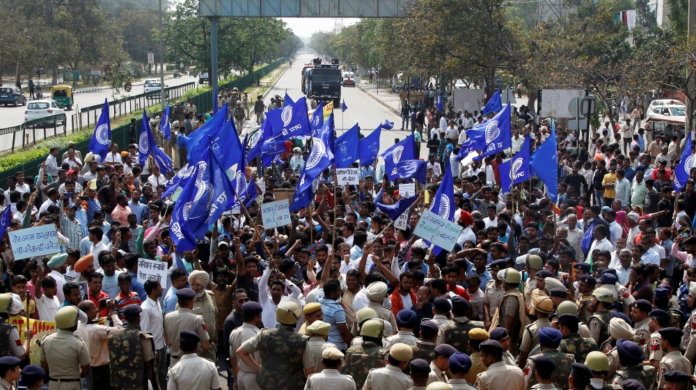Recently, two significant events sparked nationwide protests: the Supreme Court’s announcement on sub-categorisation of SC/STs and the release of vacancies through UPSC’s lateral entry. In response to the unrest, the Union government clarified that they are not introducing sub-categorisation for SC/STs and asked for the cancellation of the posts. However, this did little to ease the concerns of the SC/ST communities, as the core debate on social justice remains unresolved. It is crucial to understand the origins of this debate, particularly regarding lateral entry and the categorisation of SC/STs in the context of social justice.
Introduction to Lateral Entry
The Union Public Service Commission (UPSC) recently announced 45 new lateral entry posts, inviting applications for positions such as Joint Secretary, Director, and Deputy Secretary across 24 union government ministries. Under the lateral entry policy, specialists who are not career civil servants can apply for these roles. The highest position an entrant can hold under this policy is Joint Secretary, with an initial three-year tenure, extendable at the government’s discretion.
Appointment and Reservation Policy in Lateral Entry
Responding to a query raised in the Lok Sabha about the appointment process and the reservation policy in lateral entry, Minister of State for Personnel, Public Grievances, and Pensions, Jitendra Singh, clarified that as of July 2024, 63 appointments had been made through lateral entry. Of these, 35 candidates came from the private sector. Singh highlighted that eligible candidates from reserved categories are considered along with others, but lateral entry appointments, particularly for single posts, are not bound by the reservation policy.
Prime Minister Modi’s View on Lateral Entry
At the 2019 Hindustan Times Summit, Prime Minister Narendra Modi expressed the need to introduce talented professionals into government roles through lateral entry. He emphasized that many professionals in society are eager to contribute to the nation’s development, and a structured mechanism—overseen by the UPSC—has been put in place to facilitate this.
Sub-Categorisation of Scheduled Castes and Scheduled Tribes
Alongside the lateral entry policy, there has been an ongoing conversation about the sub-categorisation of Scheduled Caste (SC) and Scheduled Tribe (ST) reservations. The NDA government, led by the Bharatiya Janata Party (BJP), has been attempting to introduce these changes. Critics argue that sub-categorisation may create barriers for SC and ST communities to participate in higher government roles, particularly at young ages (22, 23, 24 years) when many civil servants typically enter the service. If young members of these communities are not selected for civil service at this stage, their chances of reaching senior decision-making roles, such as Joint Secretary or cabinet positions, could diminish.
Concerns About Political Influence
There are concerns that lateral entry is being used by the BJP to induct individuals aligned with its ideology into key government roles. Critics claim that the BJP, influenced by the Rashtriya Swayamsevak Sangh (RSS), aims to promote its beliefs through this recruitment mechanism. They argue that the ideas of discrimination, exploitation, and authoritarianism are fundamental to the RSS ideology, and through lateral entry, the BJP is trying to influence the government’s decision-making process.
The Argument for Domain Expertise
The government defends lateral entry by stating that the recruitment of professionals with specialised knowledge is essential for modern governance. However, critics question how this aligns with the constitutional values and principles of merit and equality. The concern is that these types of appointments may undermine the foundational ideas of the Constitution, which guarantees justice, equality, and liberty for all citizens.
The Role of the Constitution
The Indian Constitution reflects the core values of the nation, declaring it a Sovereign Socialist Secular Democratic Republic. It is committed to ensuring justice, equality, and liberty for the people of India. The independence struggle was not only about ending British colonial rule but also about dismantling oppressive practices like caste discrimination, child marriage, and restrictions on widow remarriage. India’s freedom movement was a fight against inhuman ideologies, aiming to create a just society. Martin Luther King Jr.’s words, “The arc of the moral universe is long, but it bends towards justice,” resonate deeply with India’s quest for equality and justice.
The Legacy of the Freedom Struggle and the Constitution
The people of India shaped the values of constitutional morality during the freedom struggle, and these values were enshrined in the Indian Constitution by the Constituent Assembly. After independence, the Constitution became the protector of the struggles for justice and equality. Freedom fighters envisioned a society where citizens could live with dignity and equal opportunity, and the Constitution was drafted to uphold these ideals. It is a guide for future generations on how a just society should function.
Criticism of Current Regime
Critics argue that the BJP, influenced by the RSS, is forgetting the lessons of the freedom struggle and attempting to impose its ideology on the nation. They believe that the BJP is undermining the Constitution’s core values by promoting lateral entry and sub-categorisation policies that could hinder SC and ST communities from fully participating in the highest levels of governance. They call on the government to honour the legacy of the freedom struggle and adhere to constitutional morality to build an egalitarian society, fulfilling the dreams of the Constituent Assembly.
To conclude, the debate around lateral entry and the sub-categorisation of SC and ST reservations is not just about policy changes but also about the broader principles of constitutional justice and inclusivity that India stands for.

– Aryan Raj, is a member of Chhatra Rashtriya Janata Dal.


